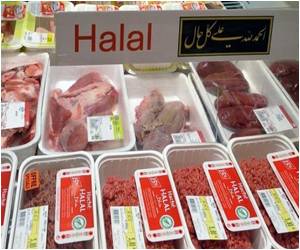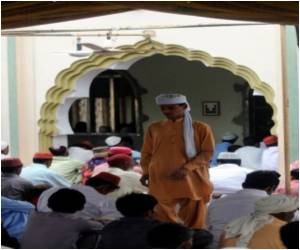
"They are the Lexus and Mercedes of the cattle world," said salesgirl Desnia Yoshie, clutching a Samsung tablet displaying an online catalogue with details of the animals for sale.
The emergence of places like the "Mall of Sacrificial Animals", as the showroom in Depok city on the outskirts of the capital Jakarta is known, comes against the backdrop of a sustained economic boom coupled with increasing piety among many of the country's Muslims in recent years.
Far from eschewing religion as they get richer, the rapidly emerging middle class and increasingly wealthy elite are seeking to outdo each other with spending on their faith -- from pricey religious offerings at major festivals to designer headscarves for women, observers say.
The Depok showroom stops selling its mostly second-hand cars for about a month before Eid al-Adha every year to make way for cattle.
At the festival, Muslims with the financial means are obliged to buy an animal to be ritually sacrificed in honour of the Prophet Abraham's willingness to sacrifice his son on the order of God.
Advertisement
Most of the cows on offer cost from $1,000 to $1,600, but the top-of-the range beasts -- the Santa Gertrudis and Brahman cross breeds -- sell for as much as $25,000.
Advertisement
The showroom attracts the elite, from government ministers to wealthy Indonesians who come back from overseas for Eid, according to owner Ramdoni Hussainor. He said that this year he has so far sold 5,000 cows, up from 4,750 in 2013.
For wealthy Indonesians used to shopping in the comfort of glitzy malls, the showroom also offers a clean, organised environment to buy cattle, a contrast to the many sellers who set up shop on roadsides ahead of Eid.
In Jakarta, cows and goats appear on street corners, sidewalks and in parks in the weeks leading up to the festival.
David Wiryanto, a manager at Samsung Electronics, who was shopping at the Depok showroom for a cow on behalf of his company, praised the set-up: "They have health certificates from the government, we can pay by credit card so we don't have to carry a lot of cash."
Observers say that increased spending on expressions of faith shows that many Muslims in Indonesia, who make up more than 90 percent of the country's 250 million population, want to match their improved economic fortunes with a stronger commitment to Islam.
"Their economic status improves but at the same time they do not want to let go of their religious identity," Noorhaidi Hasan, a lecturer on Islam and politics at the Islamic University of Sunan Kalidjaga in Yogyakarta on Java island, told AFP.
"If others buy a two-million rupiah ($165) goat, it's not a problem for them to buy one costing three to four million."
As for the showroom's staff, switching from selling cars to cows for a month each year is a unique experience -- but not one that is always pleasant.
"I smell like cow and have to shampoo my hair three times every day. I have told my boss that he owes us all a visit to the spa after Eid," joked salesgirl Yoshie.
Source-AFP









